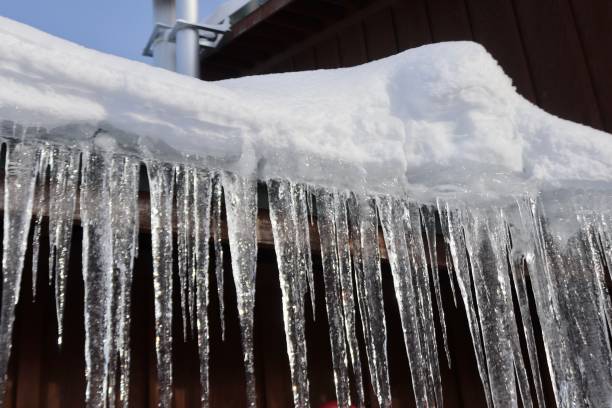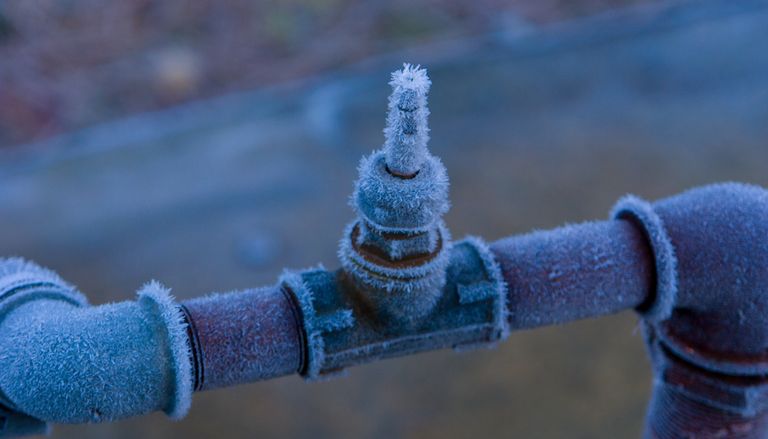Important Tips to Avoid Frozen Pipes in Winter
Important Tips to Avoid Frozen Pipes in Winter
Blog Article
The content underneath about Prevent Frozen Pipes is totally captivating. You should see for yourself.

Winter can wreak havoc on your plumbing, particularly by freezing pipes. Below's how to prevent it from occurring and what to do if it does.
Introduction
As temperatures decrease, the threat of icy pipelines rises, possibly resulting in costly repair work and water damage. Understanding just how to stop icy pipelines is critical for house owners in chilly environments.
Comprehending Frozen Pipelines
What causes pipes to ice up?
Pipelines freeze when exposed to temperatures below 32 ° F (0 ° C) for prolonged periods. As water inside the pipelines ices up, it broadens, putting pressure on the pipe walls and possibly triggering them to burst.
Threats and damages
Icy pipes can bring about water disruptions, residential property damage, and pricey fixings. Burst pipelines can flood homes and create comprehensive structural damages.
Indicators of Frozen Pipes
Determining icy pipelines early can avoid them from bursting.
Exactly how to recognize frozen pipelines
Look for lowered water circulation from taps, unusual odors or noises from pipelines, and noticeable frost on exposed pipes.
Avoidance Tips
Insulating at risk pipes
Wrap pipelines in insulation sleeves or make use of warmth tape to secure them from freezing temperatures. Concentrate on pipes in unheated or exterior locations of the home.
Heating methods
Maintain indoor rooms properly heated, particularly areas with pipes. Open cupboard doors to permit warm air to flow around pipes under sinks.
Shielding Outside Pipes
Yard tubes and outdoor faucets
Separate and drain pipes yard tubes prior to winter. Mount frost-proof faucets or cover outside faucets with shielded caps.
What to Do If Your Pipes Freeze
Immediate activities to take
If you think icy pipes, maintain taps available to ease pressure as the ice melts. Utilize a hairdryer or towels taken in hot water to thaw pipelines slowly.
Long-Term Solutions
Structural adjustments
Take into consideration rerouting pipes away from outside walls or unheated areas. Include additional insulation to attics, cellars, and crawl spaces.
Updating insulation
Buy high-quality insulation for pipes, attics, and walls. Correct insulation assists keep constant temperatures and decreases the danger of icy pipelines.
Verdict
Protecting against icy pipelines needs aggressive measures and quick feedbacks. By comprehending the causes, signs, and preventive measures, home owners can protect their pipes during winter.
Helpful Tips to Prevent Frozen Pipes this Winter
UNDERSTANDING THE BASICS: WHY PIPES FREEZE AND WHY IT’S A PROBLEM
Water freezing inside pipes is common during the winter months, but understanding why pipes freeze, and the potential problems it can cause is crucial in preventing such incidents. This section will delve into the basics of why pipes freeze and the associated problems that may arise.
THE SCIENCE BEHIND FROZEN PIPES
When water reaches freezing temperatures, it undergoes a physical transformation and solidifies into ice. This expansion of water as it freezes is the primary reason pipes can burst. As the water inside the pipe freezes, it expands, creating immense pressure on the walls. If the pressure becomes too great, the pipe can crack or rupture, leading to leaks and water damage.
FACTORS THAT CONTRIBUTE TO PIPE FREEZING
Low Temperatures: Extremely cold weather, especially below freezing, increases the risk of pipes freezing. Uninsulated or Poorly Insulated Pipes: Pipes located in unheated areas, such as basements, crawl spaces, or attics, are more prone to freezing. Insufficient insulation or lack of insulation altogether exacerbates the problem. Exterior Wall Exposure: Pipes running along exterior walls are susceptible to freezing as they encounter colder temperatures outside. Lack of Heating or Temperature Regulation: Inadequate heating or inconsistent temperature control in your home can contribute to frozen pipes. PROBLEMS CAUSED BY FROZEN PIPES
- Pipe Bursting: As mentioned earlier, the expansion of water as it freezes can cause pipes to burst, resulting in significant water damage.
- Water Damage: When pipes burst, it can lead to flooding and water damage to your property, including walls, ceilings, flooring, and personal belongings.
- Structural Damage: Prolonged exposure to water from burst pipes can compromise the structural integrity of your home, leading to costly repairs.
- Mold and Mildew Growth: Excess moisture from water damage can create a favorable environment for mold and mildew growth, posing health risks to occupants.
- Disrupted Water Supply: Frozen pipes can also result in a complete or partial loss of water supply until the issue is resolved.
WHY CERTAIN PIPES ARE MORE PRONE TO FREEZING
- Location: Pipes located in unheated or poorly insulated areas, such as basements, crawl spaces, attics, or exterior walls, are at higher risk of freezing.
- Exterior Pipes: Outdoor pipes, such as those used for irrigation or exposed plumbing, are particularly vulnerable to freezing as they are directly exposed to the elements.
- Supply Lines: Pipes that carry water from the main water supply into your home, including the main water line, are critical to protect as freezing in these lines can affect your entire plumbing system.
- Underground Pipes: Pipes buried underground, such as those connected to sprinkler systems or outdoor faucets, can be susceptible to freezing if not properly insulated.
https://busybusy.com/blog/helpful-tips-to-prevent-frozen-pipes-this-winter/

We hope you enjoyed reading our section about How to Prevent Your Pipes From Freezing. Many thanks for taking the time to read through our blog. Do you know about another person who is fascinated by the niche? Take a moment to share it. Thanks a lot for your time spent reading it.
Call Today Report this page